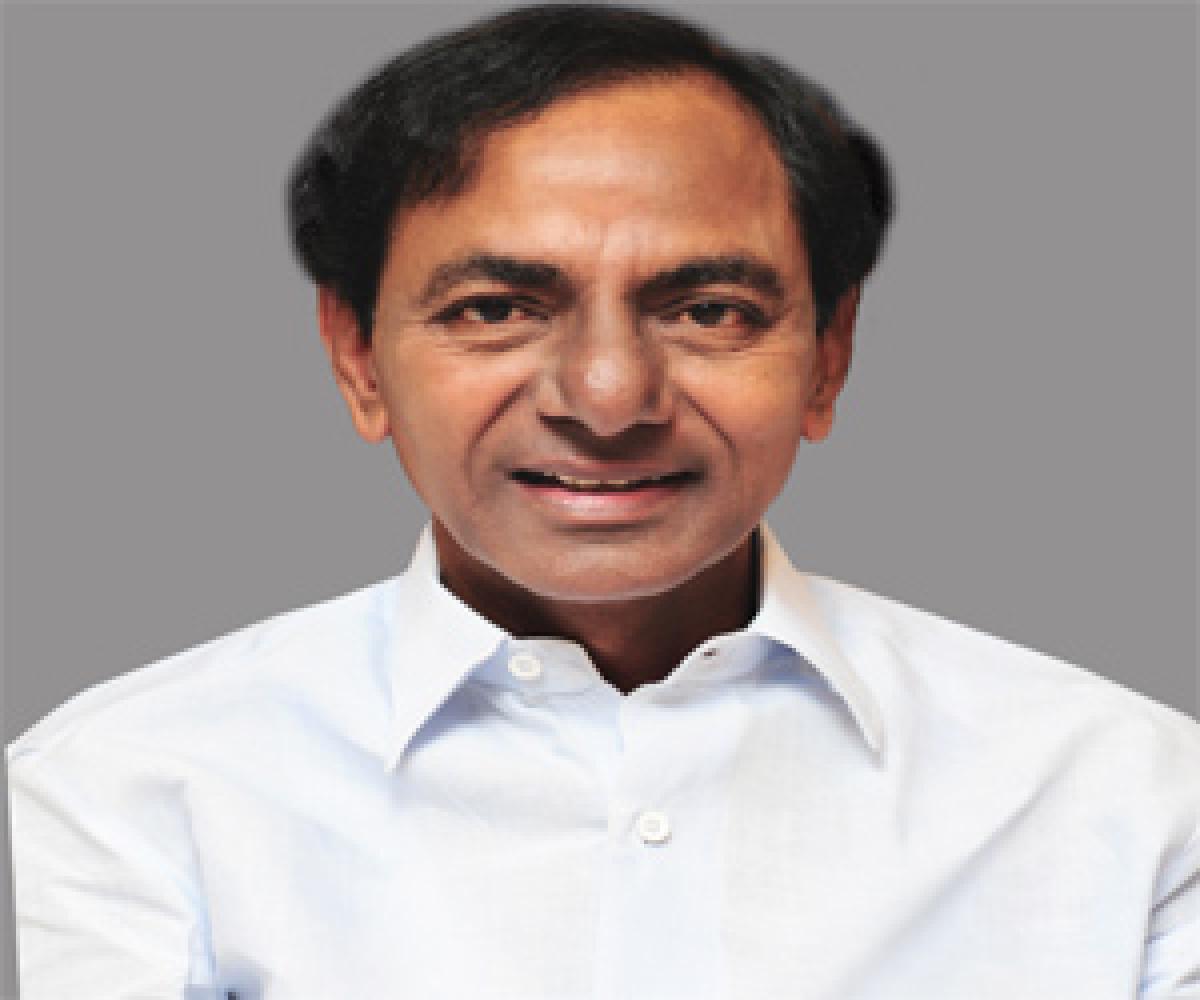Live
- ‘Bachhala Malli’ trailer heightens anticipation
- Karnataka quota row: Backward Class forum chief warns Lingayat seer over 'tinkering with reservations'
- Tight security arrangements at Group-II examination centers District SP
- Alia Bhatt captures attention in white
- Varun Dhawan talks about ‘Baby John’
- ‘Moonwalk’ trailer promises a quirky heist, love, and loyalty
- Combat leaf spot disease
- Ahsaas Channaopens up about her complex character in ‘Mismatched 3’
- Radhika Apte welcomes first child, shares heartfelt post
- Jacqueline dazzles at Da-Bangg Reloaded concert
Just In

Chief Minister K Chandrasekhar Rao on Saturday urged the Centre to play a more decisive role in resolving the inter-state disputes. He said it should also be made mandatory for the Tribunal for inter-state water disputes to give their awards in a prescribed time limit, as recommended by Punchhi Commission.
New Delhi: Chief Minister K Chandrasekhar Rao on Saturday urged the Centre to play a more decisive role in resolving the inter-state disputes. He said it should also be made mandatory for the Tribunal for inter-state water disputes to give their awards in a prescribed time limit, as recommended by Punchhi Commission.
This statement of KCR assumes importance in the wake of the objections being raised by the Andhra Pradesh government over the projects being taken up by the TS government.
In the 12-page speech that was read out by Chief Secretary Rajiv Sharma on behalf of the Chief Minister, felt that though the Centre has, of late, improved the budgetary allocation on highways, the country also requires substantial infusion of funds in irrigation, education and healthcare.
Each state should be given at least one major national project in irrigation. KCR had left the meeting after an hour and half as he was not feeling well. He sought the permission of the Prime Minister and the Union Home Minister and left the venue.
KCR said the TS government supports the recommendation that the states should also be consulted while selecting the Governor. The Governor should also not have any discretionary powers in holding any Bill indefinitely and a time limit should be prescribed.
“We also agree that Governor should not be made Chancellor to the Universities as they have a larger role to discharge the constitutional functions and Telangana has already implemented this,” he said.
The Chief Minister said a lot still remains to be done by the Centre to strengthen the States by greater devolution of funds along with vigorous initiatives to take up the responsibility to create infrastructure which will boost the economy.
Each state should be given at least one major national project in irrigation, he added. In the matter of any new Act or amendments brought by the Central Government in the concurrent list, KCR said the consent of states should invariably be taken and in case it entails a financial burden on the States, the Centre should fully reimburse it. For example, in Telangana alone, Rs 300 crore is required annually to implement the Right to Education (RTE) Act.
Further, there are schemes like model schools sanctioned by the Government of India, but funding has stopped now creating a huge burden on the States in terms of salaries and allied expenditure. If any scheme is started by the Government of India, all recurring expenditure should be borne by it, instead of abruptly stopping the same, he said.
KCR emphasised that unilateral control of central agencies in the matter of subjects in the concurrent list should be avoided. For example AICTE should not give permissions to Colleges unless ‘No Objection Certificate’ is given by the affiliating Universities. When Telangana was formed in 2014, there were as many as 356 engineering colleges sanctioned by the AICTE.
Now this number has come down to 172, because the universities withdrew the affiliation of colleges with inadequate facilities. It is also unfair that 65% of the UGC budget is utilised for a handful of Central Universities, while the remaining 35% only is distributed to hundreds of State Universities he said.
Mentioning about the delimitation exercise to increase the number of Assmebly seats in Telangana from present 119 to 153 as per the AP Reorganisation Act, 2014, he said Centre should intervene, if necessary, by introducing appropriate amendments to the laws, to carry out the delimitation exercise in Telangana and Andhra Pradesh.
KCR said the Government of India should also change its accounting practices regarding booking of expenditure on works of capital nature being taken up under MNREGA. Now, these are shown as revenue expenditure, even if a permanent asset is created. He reiterated the demand to encourage the states to widen their resource base, including recourse to borrowings by suitably enhancing the FRBM limits.

© 2024 Hyderabad Media House Limited/The Hans India. All rights reserved. Powered by hocalwire.com







